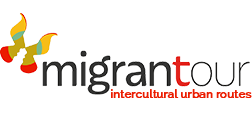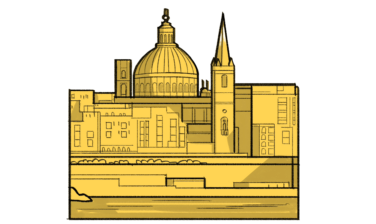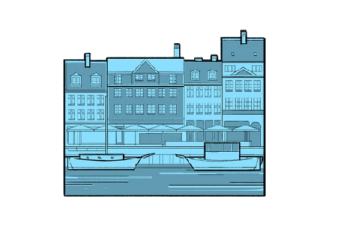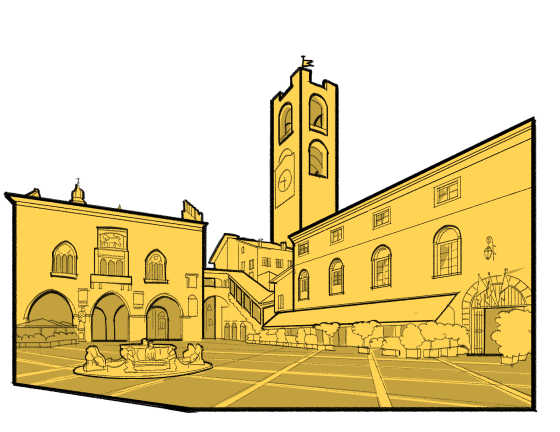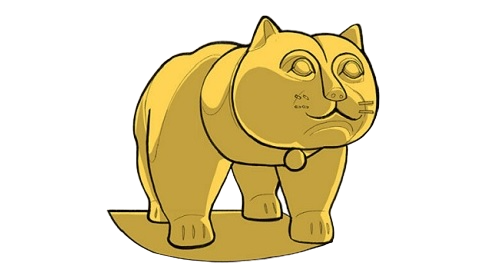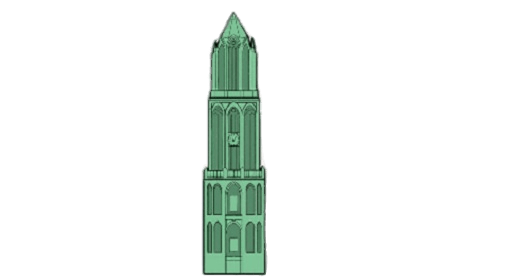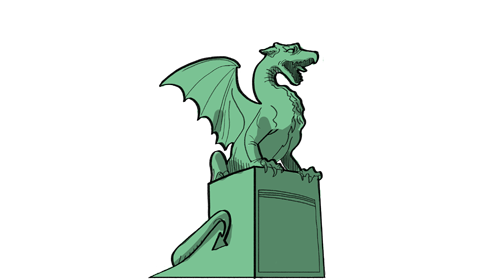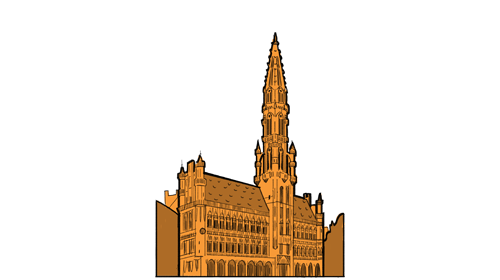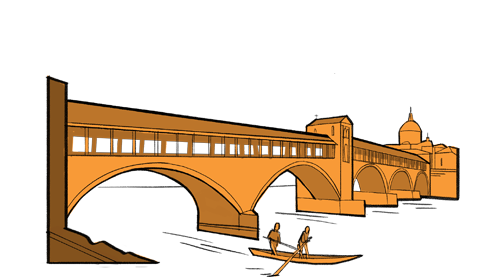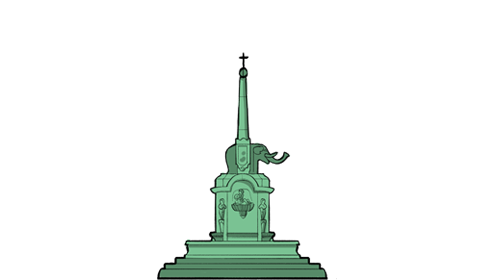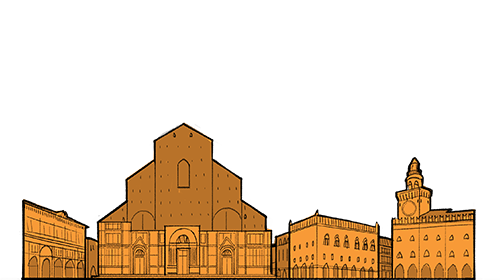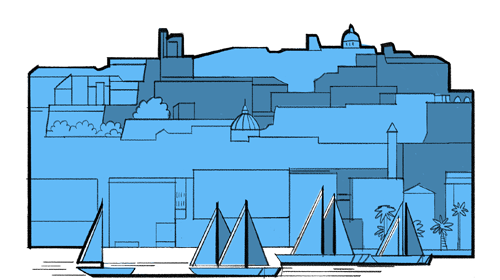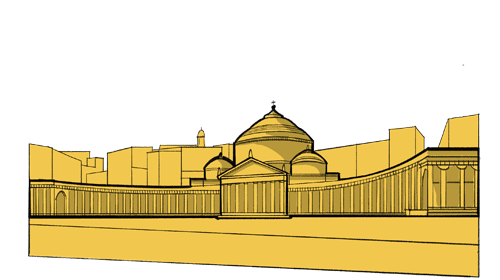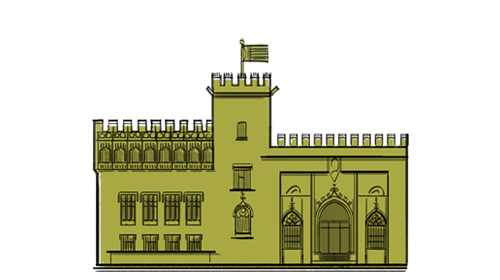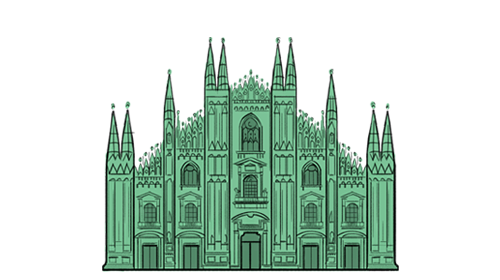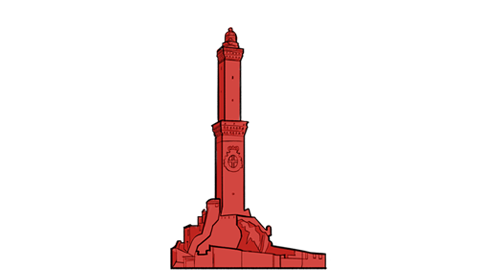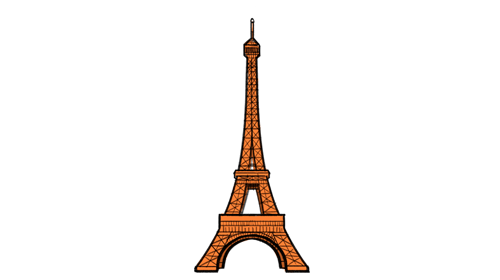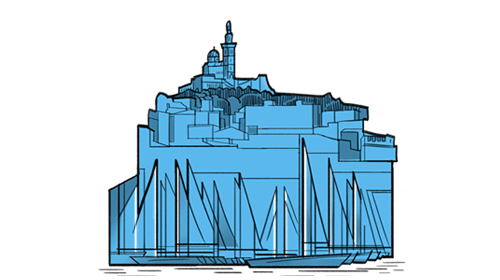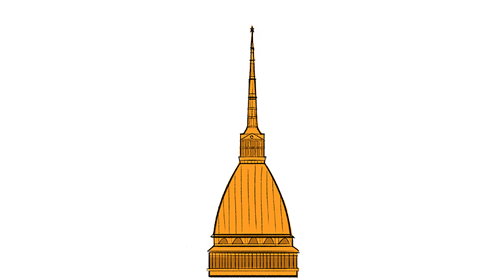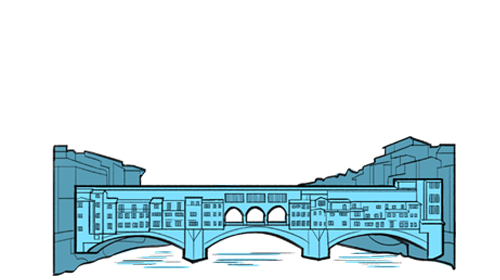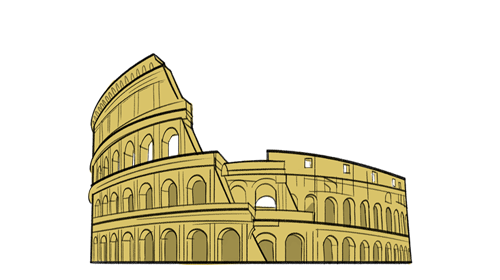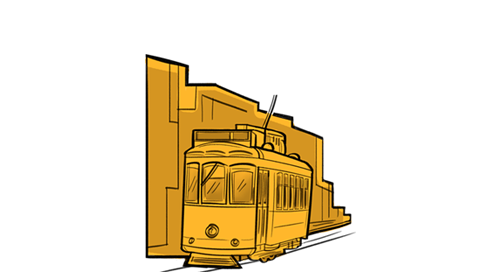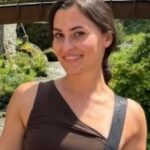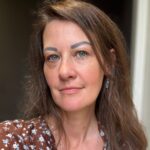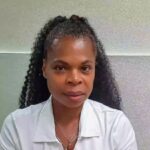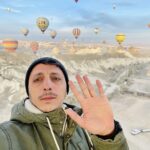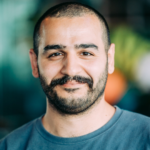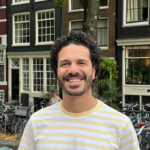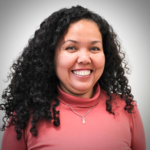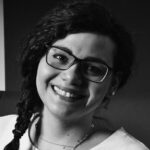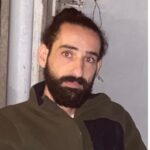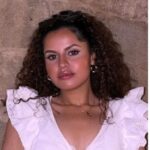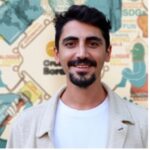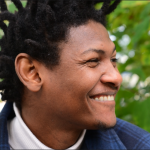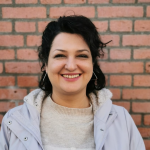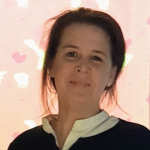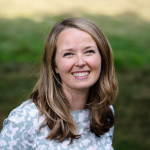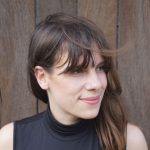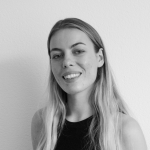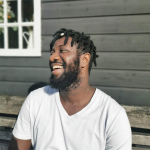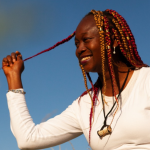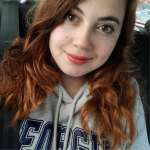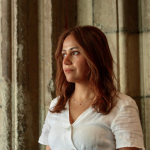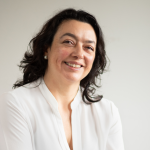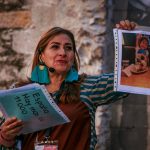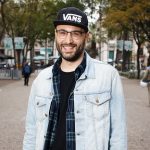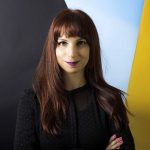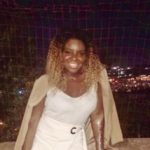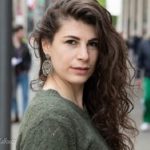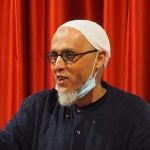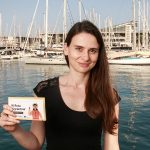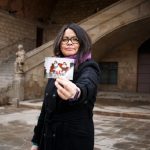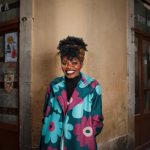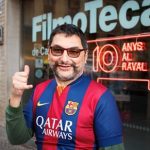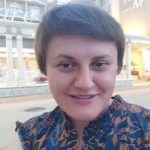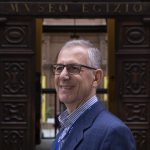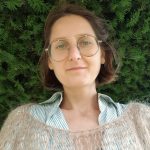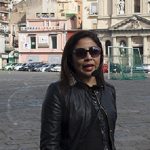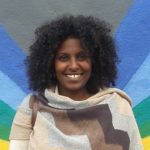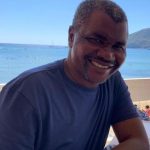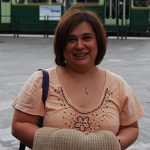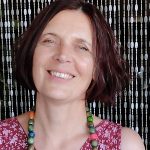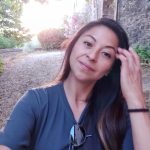The ciities of the Migrantour network offer intercultural urban walks designed and led by citizens of migrant origin. A zero-mile responsible tourism experience to better understand the role of migration in the transformation of European societies. An invitation to travel, meet and reflect on the value of diversity and dialogue.
The Manifesto
The Migrantour project has now a history of more than 15 years and during this long time we have never stopped reflecting on the assumptions, objectives and methods of our commitment. In the autumn of 2021, the enrichment of the network with the engagement of many new partners in different European countries gave us the opportunity to harvest what we have learned and experienced in these years. We met all together online to discuss the shared meaning that Migrantour has for intercultural companions and project staff members in all the cities involved.
We are glad and proud to present here the result of our reflection: the “MIGRANTOUR MANIFESTO” expresses the ethical, poetic and political horizon within which the intercultural walks have been framed since 2009 as a concrete practice of intercultural encounter. We therefore invite you to take a little journey through our MANIFESTO, pausing for a few minutes to reflect on the keywords that inspire our initiative: equality, solidarity, dialogue, memory, discovery, change, diversity, inclusiveness, future…
Download the “Manifesto Migrantour”»Intercultural companions: the faces of our cities
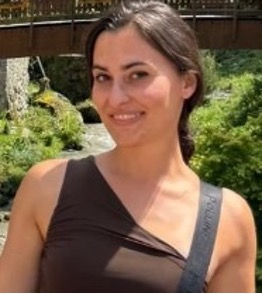
Federica
I am Federica, I come from Italy, and I proudly lived in my Sicily until my 17 years of age, when I moved to the magic Malta. I am graduated in Anthropology and Philosophy, and I am currently following a Master in political philosophy at the University of Malta.
Experiencing life and study abroad has given me the tools to navigate in a world full of treasured uniqueness. I am passionate about discovering other cultural lifestyles and happy to share my curiosity with the world. Among the reasons to become one of the paladins of the ORRAJT project, is surely my passion for writing, for storytelling and the amazement this role can generate in people’s heart. Moreover, I believe it is vital to raise critical awareness about topics which affect everyone on the Earth.
My two favorite stops are the Mediterranean square, where I talk about migration not as a ‘critical phenomenon’ in need of a solution, rather as an inherent social process. The second stop is the Mamma Mia restaurant, because I speak about my familiar experience, and the importance of food as connector of cultures.
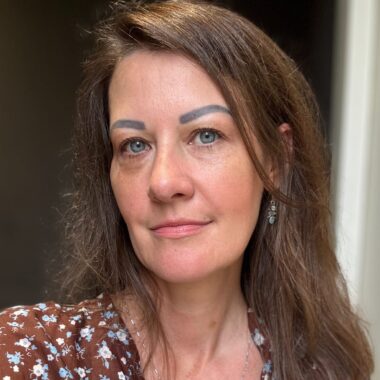
Olga
My name is Olga and I come from Ukraine, a beautiful country rich in history, culture and landscapes to discover. However, since March 2022, I have been living in Italy with my two children. With a lot of help from this wonderful country, we have managed to build a new life for ourselves.
I love Florence. It is a city of celebration, art, history and also very international.
I have always been fascinated by stories of migration, and living this experience first-hand, I felt part of a larger human flow. When I discovered the Migrantour project, I immediately understood: this is my place.
Today, I am happy to be able to tell this part of my life in Florence and, more generally, to share reflections on the world and humanity with tourists from all over the world. I love talking about my country, Ukraine, my history and using objects, images and flavours from our culture. Anything that highlights what unites us as human beings.
I hope to leave a mark not only in the minds but also in the souls of our guests.
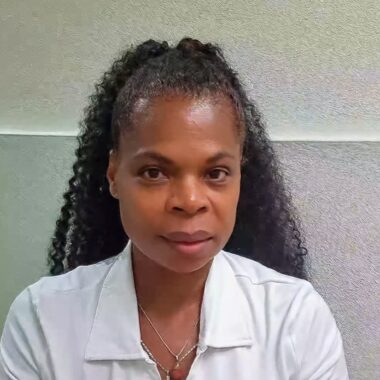
Mary
My name is Mary Valeriano, I was born in Brazil and have been living in Italy for over thirty years.
In Florence, I work as an intercultural companion with Migrantour, a project that is very close to my heart because it brings people together through stories and places. I chose to participate because I believe that cities are also made up of what each person knows and of the memories that each person carries with them. I am passionate about narrate and bring out the connections between past and present, between works of art, raw materials, people and knowledge that have travelled through the centuries.
The best part of this job is meeting different people, building bridges and offering new perspectives on the city.
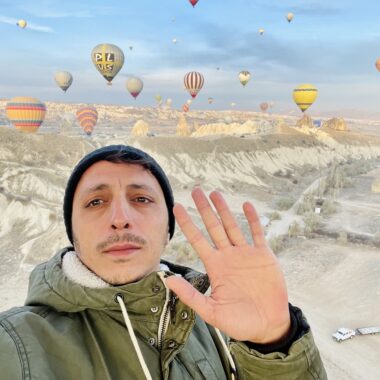
Ramzy
I’m Palestinian, from Jerusalem, and I arrived in Italy in 2007 for my studies. Florence became an important stop on my journey, even though life also led me to live in France, Spain, and for two years in Portugal.
For a long time, I wondered where my place in the world was, because so many cities felt like “mine.” Today I understand that any place can belong to those who live it, who get to know and appreciate it. Belonging is not only a matter of birth, but of relationship.
I joined Migrantour because, after many years in the city, I felt the need to keep learning, to reconnect with the territory, and to give something of myself. The project allowed me to rediscover the neighborhoods I live in every day with fresh eyes, to listen to different stories, and to tell my own.
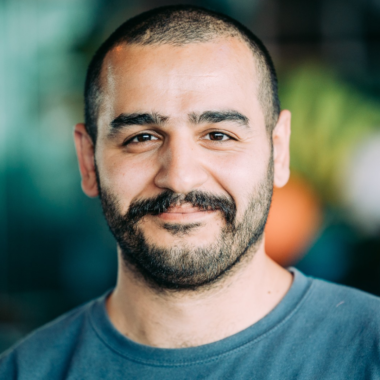
Anas
I’m Anas, a storyteller from Syria. In 2015, I came to the Netherlands as a refugee, an experience that has profoundly shaped my passion for storytelling. I firmly believe that the best way to truly understand someone is through their stories—the tales of their life. My love for reading and listening to podcasts keeps me continually immersed in the world of narratives. Through storytelling, I aim to share the richness of life, resilience, and the shared human experience, inviting you to know me, and others, one story at a time.
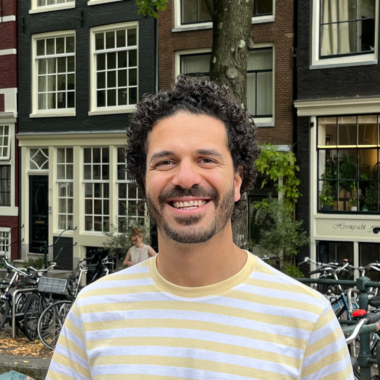
Abdel-Rahman
I was born and raised in Egypt, where I studied biotechnology. In 2021, I moved to Utrecht in the Netherlands to start a PhD focusing on breast cancer. I have always been busy with volunteer work which first brought me to the Voorkamer as Arabic language coach and community dinner coordinator. My interest in topics around migration and cultural exchange further brought me to the Migrantour Utrecht. In my role as Intercultural Companion I seek dialogue with the participants, share my experience and knowledge in a meaningful way, and connect to lots of different people.
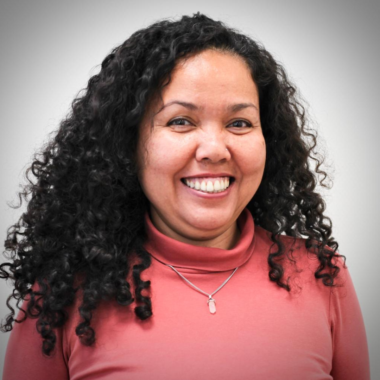
Fitri
I was born and raised by a Christian mother and a Muslim father in a small village in North Sumatra, Indonesia. Coming from a humble family, my parents moved to the city, so we the children could have a better future than they had. After completing my university studies in Yogyakarta, I worked for the UN and various organizations in Southeast Asia, on climate change, sustainable development, and disaster management. I hold a master’s degree in Defense and Security Studies. My life took a turn when I met my husband and got married, I decided to move to the Netherlands. I have been living in the Netherlands since 2023. Being a part of the Migrantour is important to me. As an Asian, a woman, a humanitarian and development worker, and a storyteller, Migrantour provides a platform for me to share stories and experiences—both my own and those of people before me, how we overcame complexity and challenges to reach where we are today, shaping who we are today, along with the contributions we have made to society.
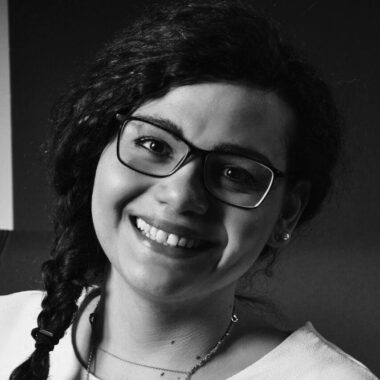
Giovanna
My name is Giovanna, I was born in what they call the ‘selva de pedras’ (jungle of stones), São Paulo in Brazil. I moved to Turin at the age of 12 because of my dad’s job at FIAT. Over time, Turin has become my home and a place I love deeply. Through the Migrantour project, however, I was able to get to know aspects of the city that I did not yet know. For example, all the history and mixture of cultures that can be found at the Porta Palazzo Market, or all the religious diversity that is enclosed in a single district of the city, namely San Salvario.
Migrantour, however, has also helped me rediscover my history and my origins. Many times we take many things for granted, and the fact that we have to make a study of ourselves and our roots also makes us more aware of the fact that we are all citizens of the world.
Turin is the city of contemporary art par excellence, and by combining my passion for it and my desire to give back a different way of seeing the city, I created my Migrantour itinerary, which sees at each stage the description of a work or an artist linked to a different culture. Art has always helped me tell my story, it is a faithful companion and everything I do, and the fact that I can use it to describe important places in my city makes me very proud!
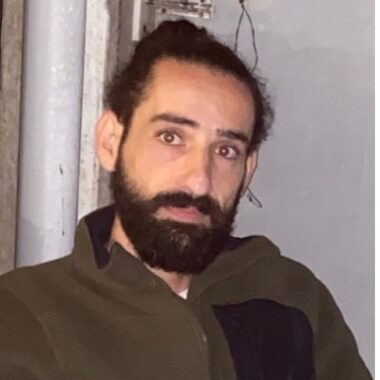
Feras Salloum
I’m Feras Salloum, originally from Syria, and I’ve been fortunate to call Denmark my home for seven years. Embracing the role of an intercultural companion, I’m passionate about connecting with people from different walks of life. I joined this project to share my unique journey and learn from others, fostering intercultural understanding and unity.
As an intercultural companion, the most fascinating aspect of my role is witnessing the transformation of a city through the lens of migrants. Among the captivating places on the Migrantour itinerary, I find Sankt Hans Torv and Blågårds Plads particularly intriguing. Sankt Hans Torv radiates cultural diversity, and Blågårds Plads symbolizes unity and resilience.
During our walks, I explore topics like the migrant experience, cultural diversity, and the power of inclusion. It’s truly fulfilling to engage in these conversations and contribute to a more inclusive and interconnected community.
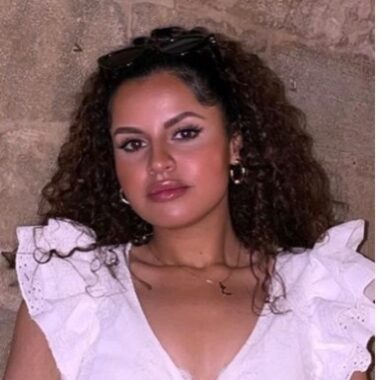
Abir Ouni
I’m Abir Ouni from Tunisia, and I’ve been living in Denmark for 12 years. As an intercultural companion, I’m dedicated to bridging cultural gaps.
I joined this project to share my journey and learn from others. The most intriguing aspect of my role is connecting with people.
The places I find most captivating on the Migrantour itinerary are the Arabic School and Blågårdsgade. At the Arabic School, I appreciate the preservation of culture and language. Blågårdsgade represents a vibrant community where migrants have revitalized the neighborhood.
During our walks, I address themes like cultural preservation, integration, and the power of multiculturalism. It’s a rewarding experience to explore these topics with fellow travelers and create a space for dialogue and understanding.
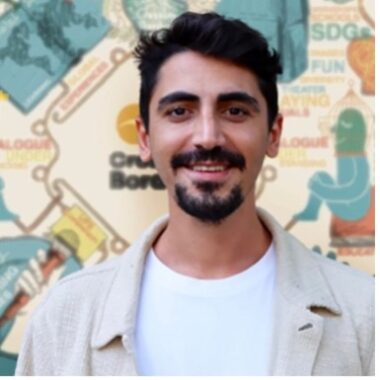
Furkan Akay
I’m Furkan Akay, originally from Turkey, and I’ve called Denmark home for the past year and a half. I embrace my role as an intercultural companion, connecting with diverse backgrounds. I joined the project to share my unique journey and learn from others, fostering intercultural understanding.
The most intriguing part of being an intercultural companion is witnessing the transformation of a city through the eyes of migrants. I find the Arabic School and Folkets Park particularly fascinating on the Migrantour itinerary. The Arabic School’s history showcases cultural preservation, while Folkets Park embodies unity and cultural exchange.
During our walks, I address topics like cultural diversity, migrant experiences, and the power of cultural exchange. It’s a wonderful experience to engage in these conversations and promote unity and inclusion.
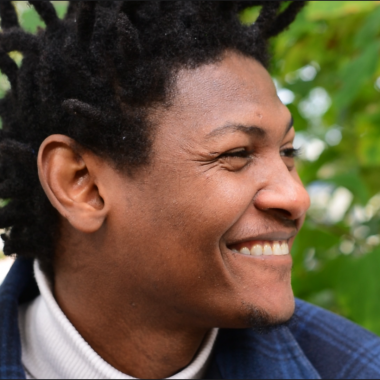
Abdulaal
I was born in Sudan and have lived in the Netherlands since 2016. I’m an actor, and I study at Utrecht’s Creative College theater department. I’m actively involved in helping young newcomers with asylum-seeking backgrounds in need of support, for example by helping them call authorities and read letters, which is difficult for them due to language barriers. I also help them connect with employers and establish their networks. I’m part of Migrantour because I love connecting with my fellow intercultural companions and tour participants. Telling stories about people’s experiences with migration is important because, if you know me, you can better understand me and we can have really beautiful conversations.
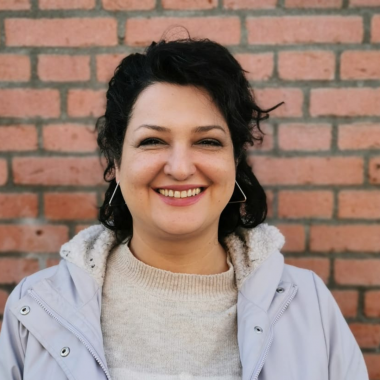
Negar
I’m from Iran and have been living in the Netherlands since 2016. While doing my master’s in Arts, Culture & Society at Utrecht University, I realized that, as an immigrant, the matter of belonging and feeling at home is at the center of my personal and academic interests. In my thesis, I addressed these themes by focusing on storytelling. Narration – especially personal narration – has the power to bring what’s hidden and less visible to light. And that is what Migrantour is all about: recognizing and acknowledging the untold stories, offering a different perspective. As an intercultural companion, this is my goal: to bring immigrants’ stories more into the public sphere and create a narrative to which more people with migration backgrounds – especially kids, like my son, with immigrant parents – can relate. Being heard, being visible, and being recognized is very fundamental to one’s sense of belonging. It’s what I want, not only for my son and the next generation, but also for myself and more broadly for all migrants.
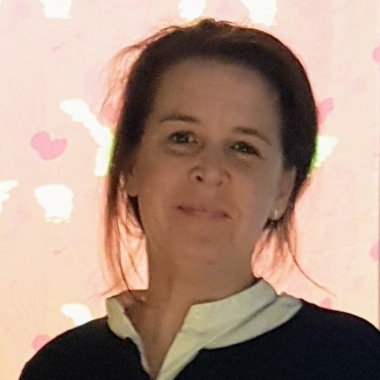
Jill
I am a German and Irish national. From a young age, I’ve been curious about travelling and lived in several countries. As a migration researcher, I work on topics related to transnational mobilities, inequalities, young people and international higher education. What makes Migrantour special to me are the personal stories of every intercultural companion that went into shaping this particular walking tour. Lombok is actually where I live with my two young children and my partner, so I’m very familiar with this neighbourhood. But walking together with the tour participants continuously opens up new perspectives for me, also on some of the societal challenges we discuss.
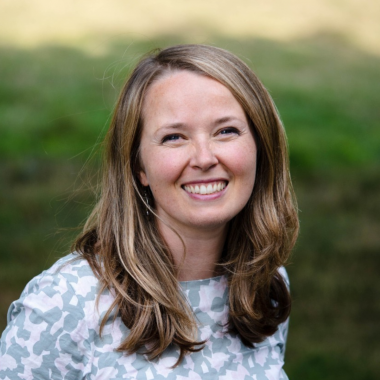
Meghann
I was born in the United States but I’ve lived all of my adult life outside of it, having studied/worked in many countries before coming to the Netherlands. I’m an associate professor in cultural geography, doing participatory action research on the transformative educational potential of tourism. I co-founded Migrantour Utrecht because I want my son, born in the Netherlands to two migrant parents, to grow up in a place where migration heritages are recognised and valued. Migrantour Utrecht contributes to that vision. My favorite part of Migrantour Utrecht has been the tour co-creation process itself. It brings together intercultural companions’ perceptions, experiences and values with those of others in the neighborhood to develop a powerful narrative about the impact of migration on our lives, both past and present. I’m incredibly proud and humbled to witness how our stories are told to and received by tour participants!
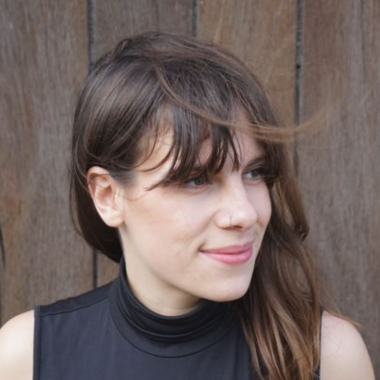
Fiona-Marie
I grew up in the industrial area of Germany with a British passport, the child of an English pilot. Ever since finishing high school, I’ve been living and studying in different places around the world. After doing a bachelor’s degree in psychology, I started a Master’s in Tourism, Society, and Environment at Wageningen University. I’m passionate about equality, education, facilitation, and dance. The strong belief that tourism can foster more inclusive societies brought me to Migrantour. Being part of Migrantour Utrecht has been a great journey. I’ve been able to explore my own roots, and I’m part of a loving Migrantour Utrecht family that I deeply honor. It still blows my mind that, even though we come from all over the world, we all found each other in Utrecht.
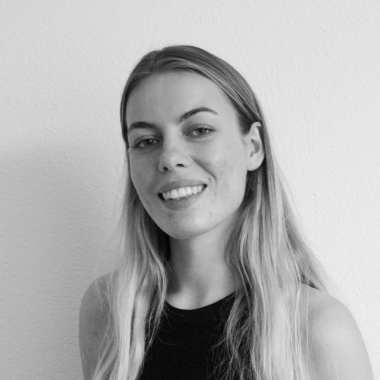
Sasha
I’m French and Russian. I was raised in southern France, surrounded by beautiful landscapes and warm people. I moved to the Netherlands in 2017 for my university studies, and I’m currently doing a degree in Gender Studies at Utrecht University. Migrantour is special to me because I get to share my stories with tour participants, learn from them and create more connections with our magical neighbourhood: Lombok. My favorite tour stop is Bilad Al Sham, a Syrian grocery on Kanaalstraat. Food is a strong element that not only connects people to their communities but also sparks sweet memories. On my tours, I always talk about Russian dumplings (pelmeni) and how they bring a smile to my face whenever I feel low. I enjoy them particularly now, in the hope that one day I will taste them again in Russia.
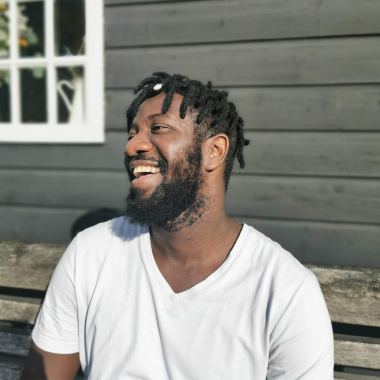
Denzel
I’m from Senegal and have been living in the Netherlands since 2020. I’ve done all different sorts of jobs here, working in restaurants, construction, security, shops, sports clubs, etc. What I like most about being an intercultural companion is learning, leading, and listening. That’s why I participate in Migrantour – it’s what I’ve wanted to do for a while: sharing knowledges. My favorite tour stop is Ubuntuhuis. It’s where everything started for me because, when I arrived in Utrecht, I didn’t know anyone. They helped me find a place, food – everything, even Migrantour.
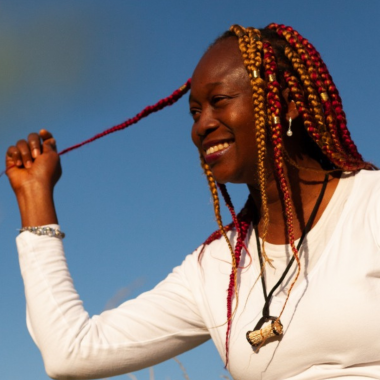
Yetunde
“Smile, Care, Learn, Move, and Inspire” – that’s my motto. ‘I’m from Lagos, Nigeria, where I grew up with a communal lifestyle. I moved to the Netherlands for family reasons. I’ve been involved with many social and community-based projects to promote links among people with diverse experiences and cultural backgrounds. I’m passionate about respect, interactions, inclusion, and health. I enjoy music, nature, public speaking, traveling, exchanging knowledge, and making meaningful connections with people, for social impact and a better world. That’s why I participate in the Migrantour project. The most interesting stop on our tour for me is De Voorkamer – it’s “The World in One Magical Space”. My friends and I believe that there’s no understanding of migration without vibration – in other words, our perceptions can be enriched when we really connect with each other. Will you walk with us so we can learn together?
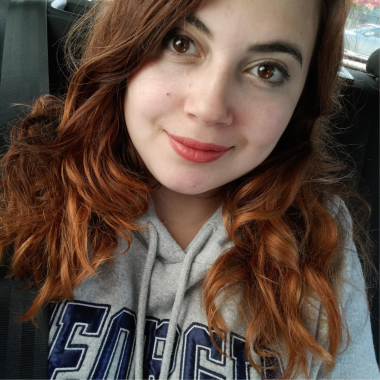
Dana
I’m Palestinian Syrian. I received a degree in English literature from Al Baath University in Homs, Syria. Migrantour offers participants a different perspective on Utrecht’s Lombok neighborhood, bringing awareness to both its beauty and its challenges. It invites us to leave our prejudices aside and find something, someone or someplace we can relate to. I love being an intercultural companion. It allows me to meet interesting new people and to just be myself with them. I hope to be able to touch their hearts through the sharing of stories and genuine laughter.
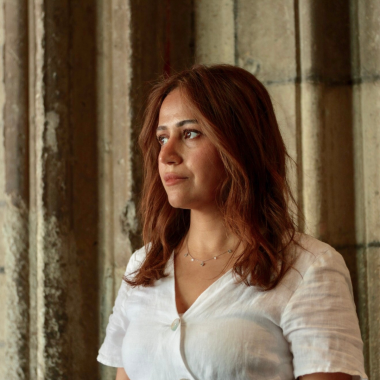
Randa
I’m Palestinian, Syrian, and Dutch. I came to the Netherlands in 2017. I studied English language and literature at Damascus University in Syria before doing my MBA in Bahrain. I’m a writer, playwright, public speaker and storyteller. I’ve published two books (وطن وخبز وذاكرة (Homeland, Bread, and Memory); لعبة الاختباء (Hide & Seek)), poems, chapters (Iemand zetten gewoon het licht aan), and a play (‘The Lost Humanity’). The Migrantour Utrecht project gives me the opportunity to learn about how people coming to the Netherlands form a relationship with their new place. Creating a link between the places one is talking about on the tour and one’s own personal experiences makes Migrantour unique, resisting cliché. For me, the most interesting tour stop is Ubuntuhuis. It focuses on the importance of recognising the needs of others – the basic needs of people with undocumented status. I love the Ubuntu greeting: ‘I see you.’/’I am here.’ It says so much.
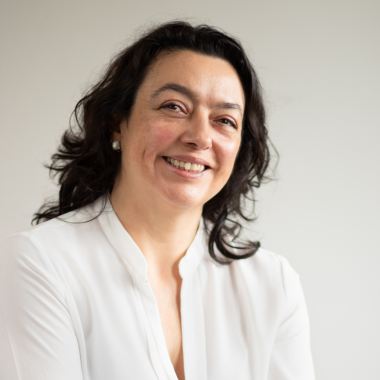
Paula
As a Guatemalan, I enjoy everything colorful. That’s how I connect with the Lombok neighborhood in Utrecht, through all its colors. My family and I have been living in The Netherlands since 2019. We decided to move to the Netherlands with our teenage sons so that they broaden their horizons and their world view. Deep inside, it was also my long-time wish to live in Europe. My husband is a wise man: happy wife, happy life. To maintain my bond with my home country and enjoy the best of both worlds, I have a travel company that specializes in organizing trips to Guatemala called ‘Let’s Go to Guatemala’. We live very close to Lombok, and during the last three years, my life has been encompassed in the area around Lombok. Becoming an intercultural companion with Migrantour allowed me to learn about different perspectives and the history of immigration in the Netherlands and share my own personal story.
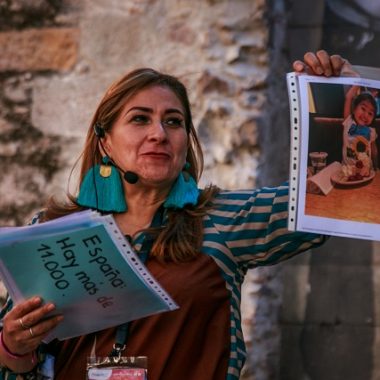
Karina
Hi, I’m Karina, Colombian and I’ve been in Spain for 4 years. In my country I am a preschool teacher and now in Spain I work for “Doctors of the World”, an NGO. I am a socio-educational mediator, I do psychosocial support to women at risk of social exclusion, especially women in prostitution, violence and trans women. I belong to the big family of Migrantour Barcelona, being an intercultural companion for some months now. Since I got to know the project, I fell in love with it because I think it is a beautiful way to show the reality of migrants from another point of view, where each of us can tell something about our country of origin, tell a short story of our history and highlight the beautiful side of the place we are showing, in this case the Raval neighbourhood. During my tour I visibilize the issue of human trafficking, specifically women for the purpose of sexual exploitation. My idea is to make people aware that trafficking does exist, that it is a real problem and that we should show it without any kind of taboo and without embellishment. I also seek to show the beautiful side of my country and that we are also human beings, that we work and that we only want an opportunity in another place, to be able to help our people and those we have left behind to help them have a better quality of life.
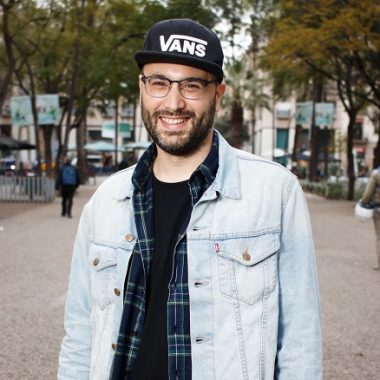
Emiliano
I am an Argentinian psychologist, emigrated in 2017 to Spain. I am currently working as an assistant technician because the Spanish government does not recognise my degree (or anyone else’s). And so I have had to do the degree again. I started participating in this project as a way to integrate into society and meet people. I decided that I had to get out on the streets a bit to deal with the frustration and emotional problems I had to face due to the lack of recognition of my profession and the fact that I had to work in anything else but what I had been trained for. Along the way I was able to meet wonderful people from all over the world who taught me their stories and opened doors into their lives. Sharing moments together with other people helped me to make my suffering more bearable and that is a good part of what I want to show on tours. I speak English and I strive to be able to do my tours in English as well. So I can share and show many great intercultural movements that are taking place in the Raval neighbourhood. Loaded with stigmas and prejudices, like migrants, through this project we want to share new discourses and new ways of doing and sharing that are emerging among all of us. That’s a bit of the spirit of what I want to share with Migrantour.
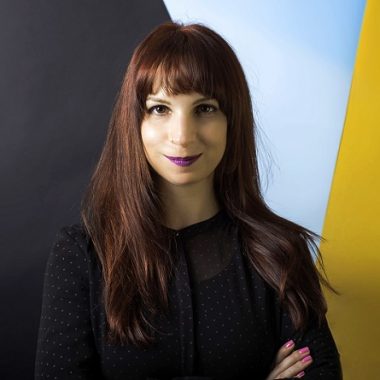
Andreea
I am a graphic designer and I was born in Romania. I came to Barcelona for a master’s in editorial design in 2011, I found a job and I fell in love with the city.
When I heard about Migrantour, I got so excited there was this beautiful way of showing my country from another perspective. Being an intercultural companion brings me a lot of happiness with every tour, the interest of the people to know more about other cultures, and their empathy. With dialogue it is so easy to bring people together, to show them we are all so different but so alike.
The tours are in Raval, one of the neighborhoods that are not very well seen in Barcelona. It is said it’s dangerous, but during the tour the people realize not only that is not true, but that there are so many beautiful people doing beautiful things in Raval and that is so much worth it. Top Manta is one of my favorite spots, it is an alive example of what people can do together, and how these connections can make BIG changes in the world.
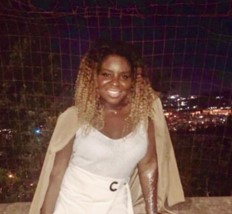
Priscilla
I am Priscilla, I am 23 years old and I have been working with Migrantour for 3 years carrying out the “In the belly of Naples” itinerary. I was born in Palermo, to a Brazilian mother and a Ghanaian father. I live in Naples where I grew up, study and will very soon become a biotechnology major.
I chose to participate in the project because it seemed like a good way to express my culture and give voice to all the communities that live in this city, as they are often not recognized and heard. During the walks I always like to tell the stories of Naples by also adding my personal stories and my mom’s stories, I grew up in this city and to feel it even more as my own, Migrantour Naples is a way I always try to convey myself in the itinerary I lead.
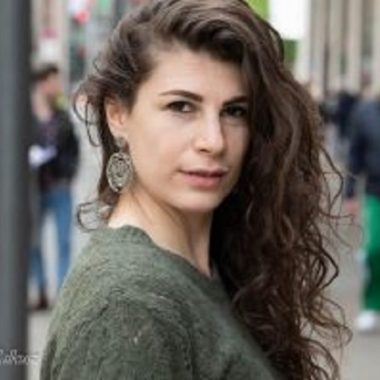
Edma
My name is Edma, I am from Syria, I am an artist and I have been living in Italy since 2018. I studied at the Academy of Fine Arts. I then worked as a designer until the war broke out and the company had to close. During the war I was a teacher at the fine arts academy and at some schools, I also volunteered with JRS (Jesuit Refugee Service) to help people who had fled because of the war until, in 2018, it was our turn to leave home and go away.
Here in Italy I paint, do some theater and am an intercultural Migrantour escort in Rome’s Esquilino neighborhood. I am happy to be part of this project and bring others a piece from Syria. I believe so much in the Migrantour project and I am convinced that all together we will be able to build bridges between cultures, sharing riches, beauties, thoughts and much more.
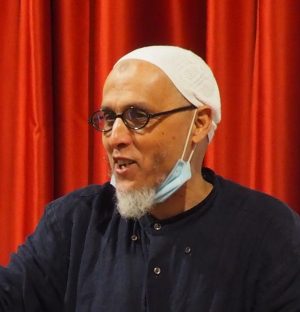
Abdellah
Nourished by the rich Maghrebi culture, I was born and raised in Casablanca, Morocco. I arrived in Italy with a cardboard suitcase more than 30 years ago and entered the world of cultural mediation, working in public and private facilities. Self-taught and an intercultural companion with a Mediterranean narrative, I love Sicily but have never forgotten the places of memories. I speak 3 languages and I chose to work in this project because I love working in social work. I think a brilliant and interesting aspect of the project is the city (Catania) told from my point of view with connections to memories, places and characters from my home country.
The places in the itinerary that I love the most are the market, that is, the fair in Piazza Carlo Alberto; Palazzo De Gaetani, home of Trame di Quartiere, where the closing of the itinerary takes place; and the Mosque of Misericordia, an evocative and relaxing place that the Catanese also like so much.
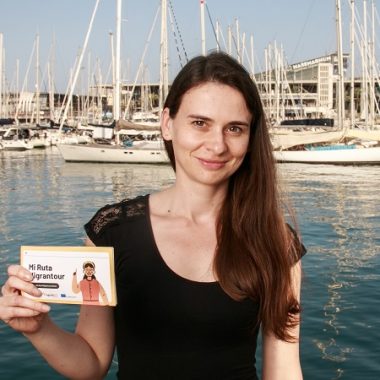
Bogi
My name is Bogi and I am from Poland, from Gdansk – a city on the Baltic Sea coast.
I came to Spain for the first time with some friends to spend the summer and learn Spanish,
We really wanted to get to know another culture and life in another country. The months we spent here we lived many adventures, we met people from all over the world and we fell in love with Barcelona. I remember being very impressed by the beauty and international character of this city. I love travelling and discovering new things, in Barcelona every day felt like I was on a trip.
Meeting people from far away corners of the world and being able to listen to their stories was very special for me.I ended up returning to this city several more times, I met people who became very important to me and 8 years ago I decided to move here permanently.
From the first moment I met Migrantour, I loved its mission to fight against the prejudices related to migration. As intercultural companions we have the opportunity to show this city to both visitors and citizens from a different perspective. It is a space to share, start conversations and create new connections, and I love being part of it.
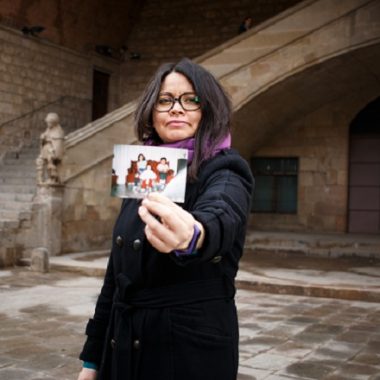
Malinalli
I’m originally from Mexico, but I’ve been living in Barcelona since 2004. I studied journalism in Mexico.
I am interested in migration and intercultural issues. I am currently an activist for human rights in Mexico in the organisation Taula per Mèxic, which among other things provides shelter in Barcelona for Mexican journalists threatened with death in Mexico. I have written about Latin American exile in Barcelona in the writing collective En palabras. I think we need to give more visibility to migrants’ stories, above all to break down stigmas. I’m sure that this will help to create more empathetic and supportive societies. I am currently working on a podcast about Latin American migrant women in Barcelona. I am doing a radio residency at La Bonne, a women’s cultural centre. I think the mainstream media puts a negative light on migration as they reinforce stereotypes or victimise, these narratives are far from reality and do not contribute to a more reflective view. I’m taking part in Migrantour because it seems to me that migration is still seen as a problem in Spain and in many countries, so a project like this can help to change the prevailing narrative and it’s also important that the people of Barcelona put a face and a voice to migrants because we are not just figures, we are cultures, knowledge, sounds… and another thing that seems fundamental to me is that through these routes, we migrants have control over our story, we tell our story, it’s not a third party who observes us and then writes about us, we tell our own story.
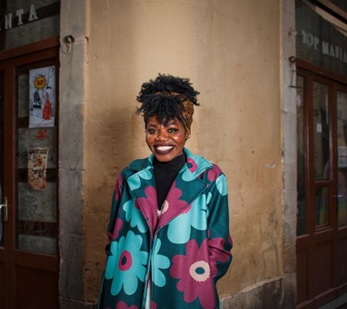
Perla
My name is Silvia, although I prefer to be called Perla, I was born in Equatorial Guinea and grew up between Cameroon, Gaboon and Spain (Barcelona).
I have been known as Afropoderossa since 2017, when I decided to create my social media account to share my transition from straight afro hair with chemical straightening to natural afro hair. In this process, I shared my own afro product recipes to motivate afro women to grow their natural hair. Since then, I have been dedicated to giving visibility to the afro population in Spain as well as sharing relevant information from the African continent. My social networks are a perfect place for reflection and learning.
I came to Migrantour through social networks, it seemed like a really interesting project and I joined the training to act as a guide through migrant experiences. I am from a country that was a Spanish colony and the history of my country is closely linked to Spain and vice versa, but in Spain it is invisible. Migrantour serves as a perfect tool so that migrants can not only act as guides in the places with the most history and diversity in Barcelona. But we can do it through our own history.
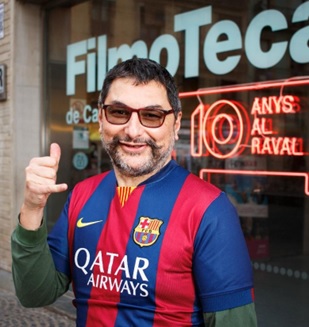
Osvaldo
A Porteño who combines mate with bread topped with tomato and dulce de leche.
An immigrant since 1995, when we “sans papiers” were still illegally selling contraband tobacco in the Barcelona metro stations.
Postgraduate in Social and Solidarity Economy and Master in Documentary Film, I am a founding member of the communication cooperative Creación de Responsabilidad Social Audiovisual.
I joined Migrantour because it allows us migrants to contribute our point of view and personal experience to the story of this wonderful city. Of the route through the Raval, my favourite stop is the Top Manta shop, because I find it the perfect synthesis that expresses all the effort, suffering and resilience of a migratory process.
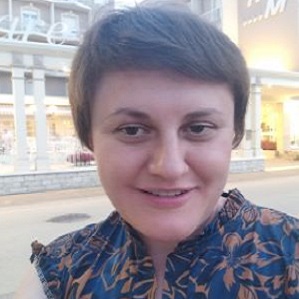
Blerta
Hello, my name is Blerta I am from Albania. For study reasons I came to Bologna 17 years ago, after I finished my studies I decided to build my life here because I feel good. In Bologna I feel at home for me there is no big difference with Tirana. It is a city at a walking pace, ancient and contemporary, where every day I can discover something new: art, culture, food but above all meet people from all over the world.
Being a Migrantour escort for me means seeing a bridge between cultures in discovering the beauty of the city from a multicultural point of view.
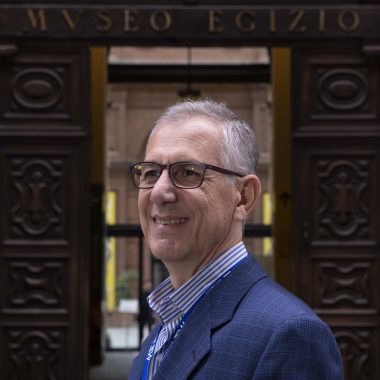
Hassan
My name is Hassan and I was born in Damascus, Syria. In my country I was a tour guide. In 2014, because of the war that devastated my country, I fled to Italy. It is difficult to talk about one’s migration experience, especially if it is the so-called “Forced Migration,” not voluntary and unplanned. A year after my arrival, I managed to reunite with my wife and children, but in Turin they call us “refugees.” No one gives you refuge unless they know you well, they are afraid of us. I met Migrantour and understood what sustainable and responsible tourism is. Thanks to Migrantour I met people from all corners of the world and we became real friends. Migrantour is confrontation between cultures, teaching interaction with society and sharing human values.
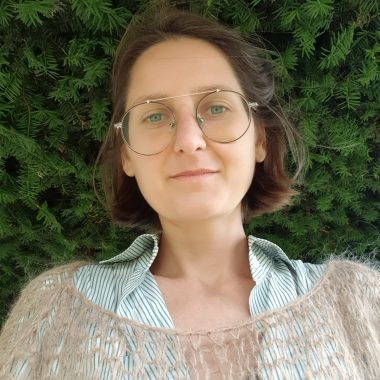
Anna
My name is Anna, I am Russian and Italy is my love at first sight. I came here to study languages and create my new identities.
I chose to become a Migrantour intercultural companion so that I can tell my story and hear from others, to keep the ties with my homeland alive but at the same time feel part of Italy.
I do the walks in Turin in Porta Palazzo with its flavors and colors, in San Salvario with the golden light of icons and the charm of Islamic arabesques, and in Barriera di Milano with many personal memories. Barriera di Milano was the first neighborhood to welcome me: I was sharing a house with an Italian-Mozambican girl with whom we used to organize international dinners for our Italian friends. The dinner was a pretext to tell people about life in the neighborhood, and now when I accompany people on a walk I unveil an eclectic-style Catholic church, stimulate them to enter the hammam, look for Millo’s murals scattered on apartment buildings, and many other things.
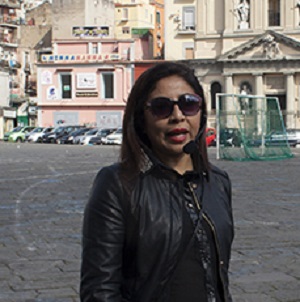
Jomahe
I was born and raised in Guayaquil, Ecuador. As soon as I arrived in Italy, I immediately thought of all the things I was leaving behind from my country that I certainly did not think I would find in Italy. As time went on, and also thanks to my experiences with Migrantour Naples walks, I realized that reconnecting with my lands was also possible by staying here. That a piece of what I had left behind also lives in Naples and Italy. I found many commonalities with my country. From a religious point of view, for example, one of the stops on Migrantour Naples is the Piazza del Carmine, the backdrop of one of the most beautiful and majestic basilicas in Naples: the Basilica sanctuary of Santa Maria del Carmine. The Neapolitan people use the exclamation “Mamma d’o Carmene” precisely to indicate the close connection with Our Lady of the Church, an exclamation that, despite the years, I still cannot pronounce well. And it is at the sight of this Church and the sound of its name that, each time, I am reminded of the costumed dances that accompany the Virgin del Carmen or Mamacha Carmen, our beloved virgin, during the procession through the main squares and streets of the city.
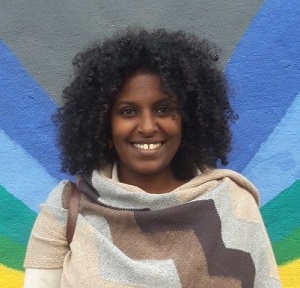
Semhar
My name is Semhar; I was born and raised in Asmara, Eritrea.
I came to Italy for study and have been living in Bologna for 15 years. I am an intercultural mediator, a job I chose to do because I am very interested in migration issues but especially in interculturality.
I feel like an adopted daughter of Bologna, a city I love almost as much as my hometown, and Migrantour allows me to get to know my city better and make it known from different points of view, creating meeting points between various cultures and religions.
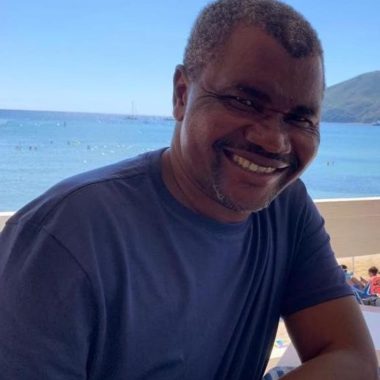
Haswell
I am Haswell Beni from Malawi. Malawi means sparks of campfire. I am a missionary teacher. I’m married to one-wife and I have two children.
Italy is where my wife comes from therefore I love Italy. I love Florence because it is my home away from home. I am proud to be a guide in Mygrantour project of Florence because it is giving me and other immigrants a vision and power to be protagonists in our intercultural society. Mygrantour has an intelligent way of integrating immigrants who love where they live. I am happy to show and share with others the present intercultural beauty of Florence.
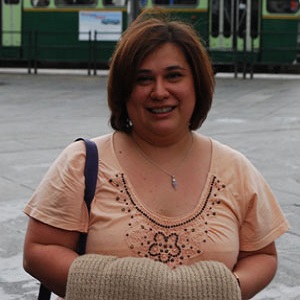
Rosina
I am Italian-Peruvian: with a Calabrian Dad and a Peruvian Mum. Since I’ve been able to remember, thanks to my parents’ work, I have been surrounded by different cultures and languages. Africa and Latin America were key places of influence, even though my emotionally formative memories are of South Italy and Peru. Peru is especially important as, for study reasons, my trips to that part of the world are ever more frequent. For several years now, I have been involved in archaeological research projects in various areas of Peru. I love living in Turin, the city where I was born, even if I would happily split my time between Italy and Peru: 6 months here; 6 months there. I’ve seen Turin change over time and become a meeting place for many cultures. There was a time when I would go to the fresh produce stalls to find Peruvian products, then the Asian markets stalls of Porta Palazzo opened up and were genuine treasure troves of goods from across the world. Now in San Salvario and across various parts of Turin I can find a corner of Peru: if I feel like chicha morada, cebiche or picarones, I can easily find them.
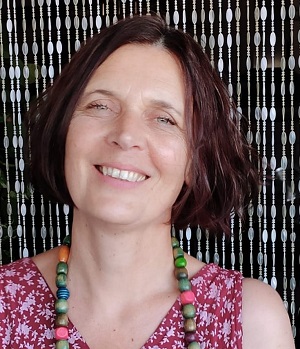
Marta
My name is Malgorzata, or Marta. I was born in Poland back in 1964 and I’ve been living in Italy for a good 28 years. I graduated at the Institute of Modern Languages and Literatures in Milan in 1995.
I live with my family in a small town outside Rome. I have two children that are still in education. In the last ten years, I have worked as a cultural mediator for different public and private bodies in the Lazio Region.
I am curious about many things such as natural medicine and the use of spices in cooking, but also modern and contemporary art.
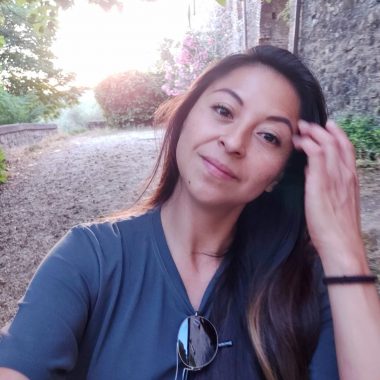
Mariela
Hi everyone!!! I am Mariela, and I am Ecuadorian. I have lived in Milan for 12 years, this beautiful city has given me many opportunities, including being an intercultural escort since 2014 and recently also a local coordinator.
Accompanying people to learn about our multicultural tours is an opportunity for mutual enrichment and integration. I feel I can share what I am and what I know about this city from my migrant perspective, but it is also an opportunity to learn from each of our visitors. The route I accompany is that of Porta Venezia, a route rich in history, blended with the encounter of different traditions, interesting literature and current events. All this cannot be missed by the gastronomic variety that can be found in this area, and of all that variety… I personally am enraptured by the delicious zighinì and the crispy samosas.
News
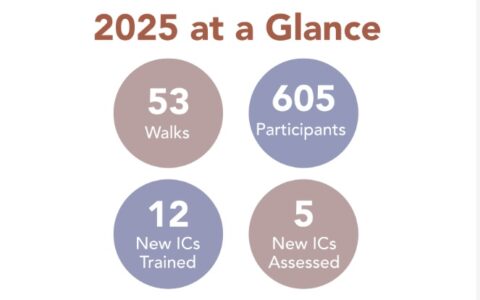
Migrantour Utrecht: Achievements in 2025 and Perspectives for 2026
January 30, 2026
On the Migrantour website, you can find the latest updates about the network every month. In addition, at the local level, each partner of our project communicates in more detail about their own activ...Read More
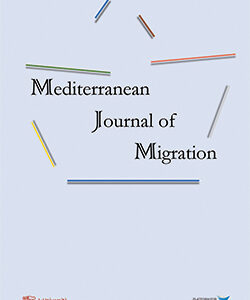
A Mediterranean journey with Migrantour Malta
December 21, 2025
Over the years, Migrantour has often been at the center of studies and research conducted in university settings from different disciplinary perspectives. Scientific articles and books written by rese...Read More
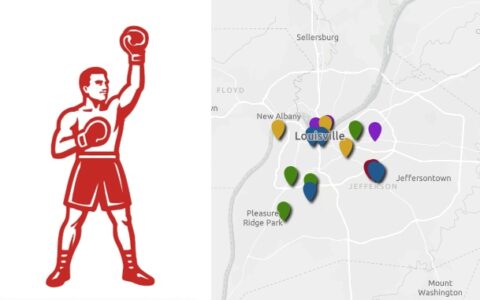
Louisville (other) heritages
November 29, 2025
The world of Migrantour is vast and varied. In addition to the partners in the European network of cities where Migrantour walks take place, over the years, we have had the pleasure of getting in touc...Read More
